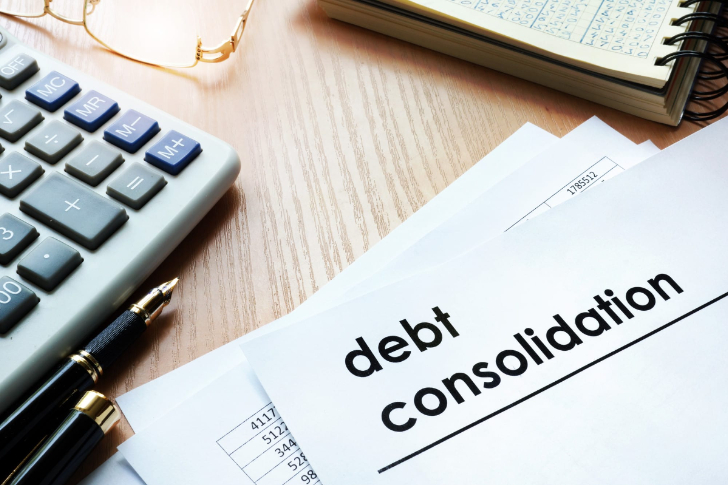Selling a house is a significant life event, often intertwined with financial goals, emotional attachments, and logistical complexities. Whether you’re relocating for a new job, downsizing after your children have left home, or simply seeking a change of scenery, navigating the process effectively is crucial for a smooth and successful transaction. This comprehensive article delves into the key aspects of selling your house, providing insights and actionable strategies to help you unlock your property’s full potential and achieve your desired outcome.

The Decision to Sell: Understanding Your Motivations and Timeline
Before embarking on the selling journey, it’s essential to clearly define your motivations and establish a realistic timeline. Understanding why you’re selling will inform your decisions throughout the process. Are you looking for a quick sale, or are you prioritizing the highest possible price? Do you have a firm deadline for moving, or do you have more flexibility?
Your timeline will significantly impact your strategy. A need for a fast sale might necessitate considering cash offers or pricing your home competitively, while a more flexible timeline allows for strategic renovations and waiting for the ideal buyer. Understanding your personal circumstances and aligning them with your selling goals is the first crucial step.
Preparing Your Property: Making a Stellar First Impression
In the competitive real estate market, making a positive first impression is paramount. Potential buyers often form their initial opinions within the first few minutes of seeing a property, whether online or in person. Investing time and effort in preparing your house for sale can significantly impact its appeal and ultimately its selling price.
- Decluttering and Depersonalization: Buyers need to envision themselves living in the space. Remove personal items like family photos and excessive decorations. Decluttering creates a sense of spaciousness and allows buyers to see the home’s inherent features. Consider putting excess furniture and belongings in storage.
- Cleaning and Repairs: A spotless and well-maintained home signals care and attention to detail. Deep clean every room, paying attention to often-overlooked areas like windows, baseboards, and grout. Address any necessary repairs, no matter how small, such as leaky faucets, broken light fixtures, or cracked tiles.
- Enhancing Curb Appeal: The exterior of your house is the first thing buyers see. Ensure the lawn is manicured, gardens are tidy, and the entryway is inviting. A fresh coat of paint on the front door, new house numbers, or some potted plants can make a significant difference.
- Staging: Staging involves arranging furniture and décor to showcase the home’s best features and create an inviting atmosphere. This can be done yourself or by hiring a professional stager. The goal is to help buyers visualize the lifestyle the home offers.
- Strategic Upgrades: While a major renovation might not always be necessary, consider minor, value-adding improvements, particularly in the kitchen and bathrooms. Fresh paint, updated fixtures, and new countertops can significantly enhance these key areas.
Pricing Strategy: Finding the Sweet Spot
Setting the right asking price is a critical factor in a successful sale. Overpricing can deter potential buyers, leading to a prolonged listing period and eventual price reductions. Underpricing, while potentially leading to a quick sale, can result in leaving money on the table.
- Market Analysis: Research comparable properties in your area that have recently sold. Pay attention to their size, condition, features, and selling price. Online real estate portals and working with a local real estate agent can provide valuable data.
- Professional Appraisal: Consider obtaining a professional appraisal from a licensed appraiser. This provides an unbiased assessment of your home’s market value based on various factors.
- Agent’s Expertise: A knowledgeable real estate agent will have a deep understanding of the local market and can provide expert guidance on pricing strategy based on current trends and buyer demand.
- Pricing Psychology: Sometimes, pricing slightly below market value can generate more interest and potentially lead to multiple offers, driving the price up. Be prepared to consider negotiation.
Marketing Your Property: Reaching Potential Buyers
In today’s digital age, a comprehensive marketing strategy is essential to reach the widest pool of potential buyers.
- Online Presence: High-quality photos and virtual tours are crucial for online listings. Most buyers begin their search online, and compelling visuals will capture their attention. Utilize real estate portals, social media, and your agent’s network.
- Professional Photography and Videography: Invest in professional photos that showcase your home’s best angles and features. Consider a virtual tour to allow buyers to explore the property remotely.
- Engaging Property Descriptions: Write detailed and compelling descriptions that highlight the key selling points of your home and its location.
- Open Houses and Showings: Be flexible and accommodating with showing requests. Prepare your home for each showing, ensuring it is clean, well-lit, and inviting. Consider hosting open houses to generate interest.
- Agent’s Network: A good real estate agent will have a network of potential buyers and other agents, expanding your reach.
Navigating Offers and Negotiations: Reaching a Mutually Agreeable Deal
Receiving an offer is a significant step, but it’s not the final one. Be prepared for negotiation, which can involve not only the price but also other terms, such as closing dates, contingencies, and included items.
- Reviewing Offers Carefully: Don’t just focus on the highest offer. Consider all the terms and conditions, including the buyer’s financing, any contingencies (e.g., financing or inspection), and the proposed closing date.
- Agent’s Guidance: Your real estate agent will be your expert negotiator, providing advice and representing your best interests.
- Counteroffers: Be prepared to make counteroffers if the initial offer doesn’t meet your expectations.
- Contingencies: Understand the implications of any contingencies in the offer. A financing contingency means the buyer’s ability to purchase depends on securing a loan, while an inspection contingency allows the buyer to have the property professionally inspected and potentially request repairs or price reductions.
The Closing Process: Finalizing the Sale
The closing process involves the legal transfer of ownership of the property. This typically involves paperwork, signing documents, and the exchange of funds.
- Working with Professionals: You’ll likely work with a real estate attorney or a closing agent to ensure all legal and financial aspects of the transaction are handled correctly.
- Understanding Closing Costs: Be aware of the closing costs associated with selling your home, which can include agent commissions, legal fees, transfer taxes, and other expenses.
- Final Walk-Through: The buyer will typically conduct a final walk-through of the property before closing to ensure it is in the agreed-upon condition.
- Transfer of Ownership: On the closing date, all necessary documents will be signed, and the ownership of the property will be legally transferred to the buyer.
Understanding Market Trends and Timing
The real estate market is dynamic and influenced by various economic factors, including interest rates, inventory levels, and local demand. Understanding current market trends can inform your selling strategy and timeline. While predicting the market with certainty is impossible, staying informed can help you make strategic decisions. Historically, spring and early summer often see increased buyer activity in many parts of the USA.
Table 1: Key Steps in Selling Your House
| Step | Description | Key Considerations |
|---|---|---|
| Decision & Planning | Determine your motivations, establish a timeline, and set financial goals. | Urgency of sale, desired price, relocation plans. |
| Preparation | Declutter, clean, repair, enhance curb appeal, and consider staging your property. | First impressions, maximizing appeal, addressing potential buyer concerns. |
| Pricing Strategy | Research the market, consider a professional appraisal, and work with your agent to set a competitive price. | Market analysis, comparable sales, pricing psychology, negotiation room. |
| Marketing | Utilize online listings, professional photos/videos, engaging descriptions, open houses, and your agent’s network. | Reaching a wide audience, creating a strong online presence, showcasing the property’s best features. |
| Offers & Negotiation | Review offers carefully, understand all terms and conditions, and be prepared to negotiate with potential buyers. | Price, contingencies, closing date, buyer’s financial strength, agent’s negotiation skills. |
| Closing | Work with legal and financial professionals to finalize the sale, understand closing costs, and complete the transfer of ownership. | Legal requirements, financial obligations, final walk-through, transfer of funds and documents. |
Export to Sheets
Table 2: Factors Influencing House Value and Selling Time
| Factor | Description | Impact on Value & Selling Time |
|---|---|---|
| Location | Neighborhood, school district, proximity to amenities, crime rates. | Prime locations typically command higher prices and sell faster. |
| Property Condition | Age, state of repair, recent upgrades, cleanliness. | Well-maintained and updated homes are more appealing and can fetch higher prices and sell more quickly. |
| Size & Layout | Square footage, number of bedrooms and bathrooms, functionality of the floor plan. | Properties that meet the needs of the target buyer demographic (e.g., families) tend to be more desirable. |
| Market Conditions | Supply and demand, interest rates, economic climate, seasonal trends. | Seller’s markets (low inventory, high demand) favor sellers with higher prices and faster sales. Buyer’s markets offer more negotiation power to buyers. |
| Marketing Effectiveness | Quality of online listings, professional photos/videos, reach of marketing efforts. | Effective marketing attracts more potential buyers and can lead to a faster sale and potentially a higher price. |
| Pricing Strategy | Setting the right asking price based on market analysis and property value. | Overpricing can lead to a longer listing period and potential price reductions. Underpricing can result in selling below market value. |











